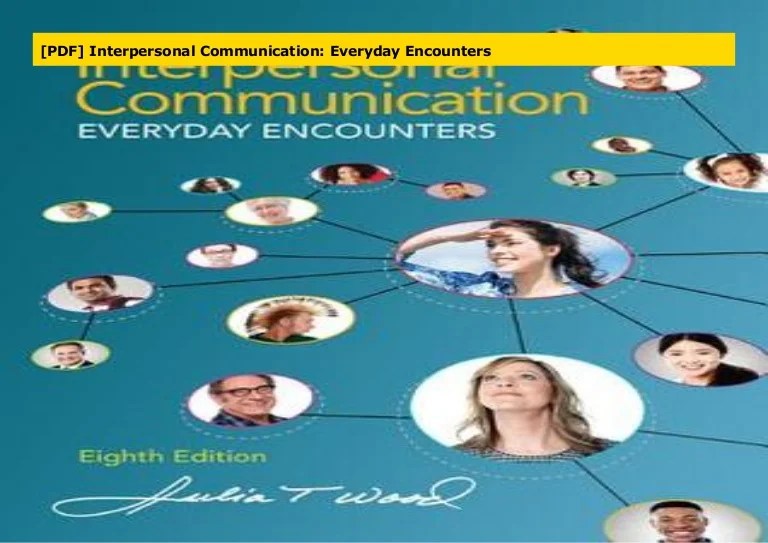Interpersonal communication everyday encounters 9th edition pdf – Interpersonal Communication: Everyday Encounters 9th Edition PDF, an authoritative resource, delves into the intricacies of human interaction, providing a comprehensive understanding of communication dynamics in daily life. This guide equips readers with essential knowledge and practical strategies to navigate interpersonal encounters effectively.
From verbal and nonverbal cues to conflict resolution and relationship-building, this comprehensive guide covers the full spectrum of interpersonal communication. Its insights empower individuals to enhance their communication skills, foster meaningful connections, and resolve conflicts constructively.
1. Introduction

Interpersonal communication is the foundation of everyday encounters, enabling us to connect, share ideas, and navigate social situations effectively. It encompasses various types, each with unique characteristics, shaping our interactions and shaping our experiences.
2. Verbal Communication
Verbal communication involves the use of words, both spoken and written. It is essential in conveying information, expressing emotions, and building relationships. Nonverbal cues, such as tone of voice, facial expressions, and body language, play a crucial role in enhancing verbal communication.
3. Nonverbal Communication
Nonverbal communication includes all forms of communication that do not involve words. It encompasses gestures, facial expressions, eye contact, posture, and physical appearance. These cues provide valuable insights into a person’s thoughts, feelings, and intentions.
4. Listening Skills, Interpersonal communication everyday encounters 9th edition pdf
Effective listening is a cornerstone of interpersonal communication. It involves paying attention, understanding, and responding appropriately. Active listening techniques, such as paraphrasing, reflecting, and asking clarifying questions, enhance comprehension and demonstrate respect for the speaker.
5. Conflict Resolution
Conflict is an inevitable part of human interaction. Conflict resolution styles range from avoidance to confrontation, each with its advantages and disadvantages. Effective conflict resolution strategies include identifying the source of conflict, finding common ground, and seeking a mutually acceptable solution.
6. Building Relationships
Building positive relationships requires trust, respect, and emotional intelligence. Effective communication, empathy, and a willingness to compromise are essential for fostering strong and lasting relationships.
7. Technology and Interpersonal Communication
Technology has significantly impacted interpersonal communication, offering both advantages and challenges. Social media and instant messaging platforms facilitate communication across distances, but they can also lead to misunderstandings and isolation.
Commonly Asked Questions: Interpersonal Communication Everyday Encounters 9th Edition Pdf
What is the significance of interpersonal communication in everyday encounters?
Interpersonal communication is crucial in everyday encounters as it enables us to connect with others, exchange information, build relationships, and resolve conflicts. Effective communication skills enhance our ability to navigate social situations, foster meaningful connections, and achieve personal and professional goals.
How can I improve my verbal communication skills?
To improve verbal communication skills, focus on clarity, conciseness, and active listening. Speak clearly and at an appropriate pace, using language that your audience can understand. Avoid jargon and technical terms unless necessary. Additionally, practice active listening by paying attention to both verbal and nonverbal cues, asking clarifying questions, and summarizing key points.
What are the key components of effective conflict resolution?
Effective conflict resolution involves identifying the source of the conflict, communicating openly and respectfully, seeking common ground, and finding mutually acceptable solutions. It requires empathy, perspective-taking, and a willingness to compromise. Effective conflict resolution strategies include negotiation, mediation, and collaborative problem-solving.
